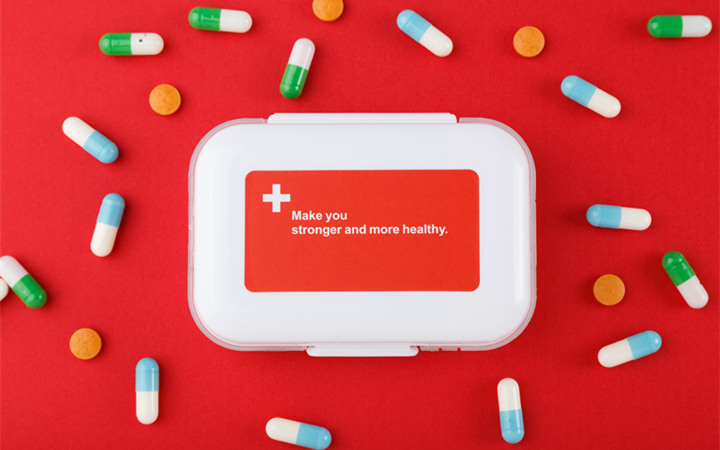Inventory | What are the main blockchain applications in the medical industry?
In the past few years, some industries have found the benefits of integrating blockchain technology into their day-to-day operations, and the medical industry is no exception.
In a 2016 IBV survey, it was pointed out that “blockchain medical groups” seem to be accelerating the adoption of blockchain, even ahead of the financial services industry. The survey surveyed more than 200 medical managers and found that 16% expect to implement a commercial blockchain solution by 2017.
Three years later, it is undeniable that, despite the initial enthusiasm, health care lags behind other industries in the adoption of blockchain. Outdated medical systems, strict regulation, privacy issues, and the history of non-cooperation in the industry have slowed adoption rates for healthcare companies.
Currently, Aetna, Anthem, Cigna, Health Care Service Corporation and Sentara have joined IBM's Blockchain Health Utilities Network Program, which aims to understand how the blockchain can solve the barriers to fast and efficient data sharing in the industry.
- Staking new gameplay: the currency of the lock can also be sold
- Fast broadcast Wang Xinxin APP "Ling Ge" came out, is the blockchain still a gimmick?
- Blockchain Weekly | Who is the basis of the blockchain: public chain or AWS?
These health care celebrities hope to provide new technical services to customers by addressing redundancy, enhancing trust, and improving security, transparency and data accuracy.
Blockchain can improve our healthcare system in several different ways, but it seems to be most effective for better digital record keeping and to simplify communication between doctors and hospitals and their patients. Even in the Internet age, keeping the latest state of the health care provider directory has proven difficult, but the blockchain can make it simpler.
The latest physical health status
A licensed blockchain makes it easier to track the health care provider's expertise, certificates and any other necessary information. When the provider information is updated in one place, it will be automatically updated in all areas of the blockchain. Using blockchains for this purpose also reduces the operational costs of maintaining directory updates while keeping information secure.
Electronic health record
Transferring electronic health records between medical institutions has been a daunting and time consuming task, but getting this information on the blockchain can make the process easier and faster. An article published by Forbes quoted Mike Reagin, senior vice president and chief information and innovation officer at Sentara.
“We want to implement a new customer-centric healthcare service model, and Blockchain is expected to help address the most important data security issues and IT interoperability issues in the healthcare sector.”
With these new delivery models, patients have better control over their medical history data and are able to manage and understand the data more easily.
Placing an electronic health record on the blockchain can also assign an identifier code to the patient so that the patient's data is always associated with their identifier, making it more difficult for the doctor's office to make the record mismatch.
Tracking drugs
In addition to sharing medical history data through blockchains, drug information can be stored and transferred through blockchains to track prescriptions, identify stolen or counterfeit drugs, and publicly share clinical trial results.
Drug counterfeiting is a major problem in the pharmaceutical industry. As of 2017, there are about 60 different Pfizer drugs and products in the world that have been forged. The World Health Organization estimates that 16% of counterfeit drugs contain the wrong ingredients, and 17% of counterfeit drugs must contain the wrong ingredients.
Every new transaction added to the block in drug traceability is immutable and time-stamped, making it easy to track drugs and ensure that information is not altered.
Medical insurance process
A blockchain based on a common payment system simplifies the process of paying for medical and health insurance claims. Patients will be able to monitor payments and claims in real time and possibly automate them.
From drug manufacturing to clinical trials, patient data management, and medical insurance claims, blockchain technology is actively promoted. The preferred use cases are efficiency and back office, with a focus on streamlining and reducing costs to improve processes. These are conservative use cases that demonstrate the power of the blockchain. The plan for the future is to open up the network to any organization that can benefit from participation and extend it to all health care payers and providers around the world.
Disclaimer: This article is compiled by Youyou Finance Author, please indicate the source!
Reference: https://www.ibm.com/blogs/blockchain/2019/08/is-there-a-blockchain-delay-in-healthcare/
Translation source: Youyou Finance https://uucj.com/archives/26233
Compilation: Youyou Finance – Trail
We will continue to update Blocking; if you have any questions or suggestions, please contact us!
Was this article helpful?
93 out of 132 found this helpful
Related articles
- Encrypting the world's largest "net red" Telegram blockchain is coming soon
- Industry Watch | Where is the future of blockchain, the opportunities and challenges of the US Securities Regulatory Commission's STO opening
- QKL123 market analysis | "slow cooking" market will continue (0827)
- Viewpoint | What is the ultimate ideal for blockchain economic system design and blockchain technology?
- I left the project side and went to the exchange.
- Babbitt Column | Blockchain Project Governance, Rules and Influence
- "The Eye of the Government" Chainalysis: Most Bitcoin mixed currency transactions are legal transactions







